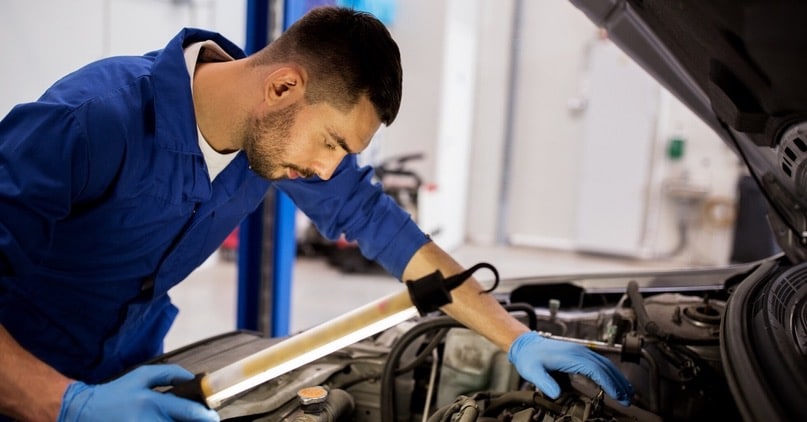All Categories
Featured
Your vehicle is an essential part of your life, and taking excellent care of it ensures that it serves you accurately for several years ahead. While modern-day cars are created to be durable, disregarding appropriate upkeep can lead to unneeded break downs and costly fixings. Right here's just how you can maintain your vehicle running longer and in peak condition.
- Stick To Regular Maintenance. The foundation of a long-lasting vehicle is regular maintenance. Follow your maker's suggested upkeep routine, which can normally be found in your cars and truck's owner's handbook. Regular jobs like oil changes, tire turnings, and brake checks prevent deterioration and keep your auto doing efficiently.
Ignoring oil modifications is one of the quickest methods to damage your engine. Clean oil makes sure appropriate lubrication and protects against getting too hot. Depending upon your car and driving routines, oil modifications are normally needed every 3,000 to 5,000 miles or as defined by the manufacturer.
- Check and Replenish Fluids. Your vehicle counts on several fluids to operate smoothly. These consist of engine oil, transmission liquid, coolant, brake fluid, and power steering liquid. Low or unclean fluids can lead to engine getting too hot, sliding equipments, and brake failure.
Make it a routine to inspect liquid degrees routinely. If you see a substantial decrease in liquid levels, it may show a leakage that needs immediate attention. Maintaining fluids clean and at the right levels ensures your vehicle runs efficiently and prevents costly fixings.
- Keep an Eye on Your Tires. Tire maintenance is critical for both safety and efficiency. Improperly filled with air tires can lower fuel efficiency, create uneven wear, and raise the risk of blowouts. Check your tire stress regular monthly and guarantee it matches the maker's recommendations.
Turning your tires every 5,000 to 7,500 miles advertises also wear and prolongs their life expectancy. In addition, check your tires for any kind of indicators of damages, such as cuts, bulges, or reduced walk depth, and change them when essential.
- Change Worn Components promptly. Disregarding damaged components can lead to bigger troubles later on. For instance, stopping working to replace a worn timing belt can cause engine failure. In a similar way, used brake pads can harm rotors, leading to pricey repair work.
Be positive about replacing parts such as trigger plugs, filters, and belts as per the supplier's standards. Utilizing top quality replacement parts guarantees much better efficiency and longevity.
- Practice Gentle Driving. The way you drive considerably impacts the lifespan of your automobile. Hostile driving habits, such as quick acceleration, sudden stopping, and hard cornering, placed added anxiety on the engine, brakes, and tires.
Instead, adopt smooth driving strategies. Increase slowly, maintain a stable speed, and brake delicately whenever possible. This minimizes deterioration on your car's parts and boosts fuel performance.

- Protect Your Automobile's Exterior. Maintaining your auto clean isn't nearly looks-- it's regarding protecting against damage. Dirt, roadway salt, and crud can cause rust and rust, especially in the undercarriage. Normal washing, particularly during winter months or after driving on salted roadways, is important.
Waxing your auto every few months offers a protective layer against ecological damages. Additionally, park your automobile in a garage or use an auto cover to shield it from extreme weather and UV rays, which can fade the paint and damage the interior.
- Don't Overlook Indication. Dashboard caution lights are your vehicle's method of telling you something requires focus. Whether it's the check engine light, reduced oil pressure, or tire stress caution, attending to these notifies quickly can prevent small problems from coming to be major repair services.
If you notice uncommon noises, resonances, or changes in your auto's efficiency, don't overlook them. A specialist auto mechanic can diagnose and repair the issue before it rises.
- Shop Your Auto Effectively. If you're not utilizing your cars and truck for an extensive duration, proper storage space is essential. Keep your vehicle in a great, completely dry place to protect it from weather condition damages. Use a battery tender to keep the battery fee and include a gas stabilizer to avoid the gas from deteriorating.

Beginning the automobile periodically or taking it for a short drive can maintain all systems in functioning order and protect against components from taking up.
Conclusion: Uniformity Is Secret. Keeping your automobile running much longer does not call for difficult measures-- just consistency and interest to detail. Treat your car with treatment, and it will compensate you with reliability, much better efficiency, and years of dependable service.
Latest Posts
Find Out Reduce Expenses on Car Maintenance with Montclare Auto Repair’s Limited-Time Deals
Uncover Oil Changes & More: Complete Services Guide from Montclare Auto Repair
Unlock Your Financial Partner at WyHy – Top Benefits for Your Money Goals
More
Latest Posts
Find Out Reduce Expenses on Car Maintenance with Montclare Auto Repair’s Limited-Time Deals
Uncover Oil Changes & More: Complete Services Guide from Montclare Auto Repair
Unlock Your Financial Partner at WyHy – Top Benefits for Your Money Goals
